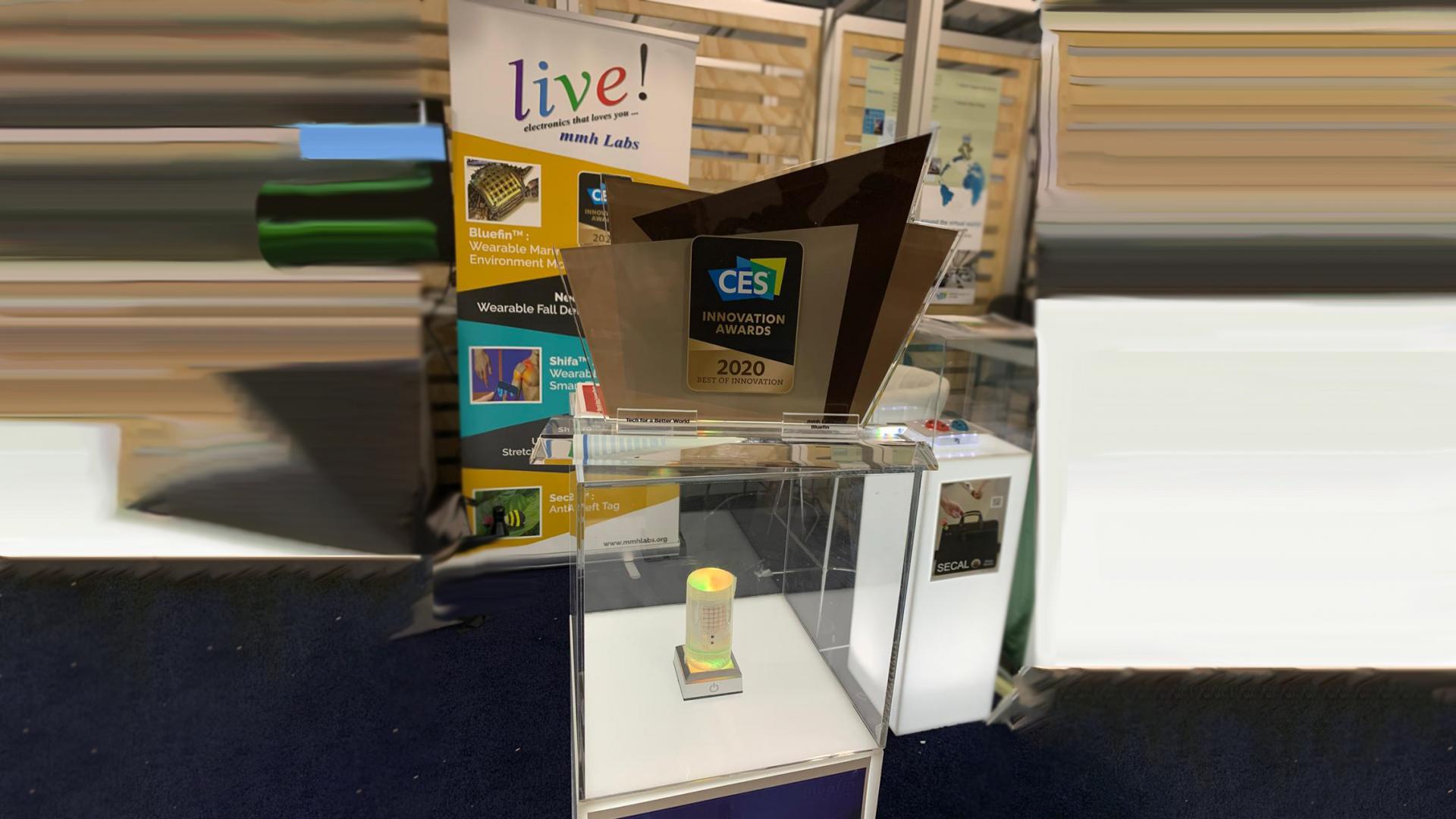By David Murphy
Winning a group-wide award such as the recent CES Innovation Award 2020 is becoming a regular occurrence for one of KAUST’s most innovative laboratories. Since its inception, the KAUST MMH Labs has acted as a space where some of the leading minds at KAUST come together to create the future of technology today. The lab’s principal investigator, KAUST professor of electrical engineering Muhammad Mustafa Hussain, believes that the CES 2020 Innovation Award serves a gratifying acknowledgment that the group’s research is having a broader impact.
“Obviously it feels great to win an award like CES 2020 Best Innovation Award. We are the first and the only academic research group in the history of CES to win this award. Let’s not forget the MMH Labs is not a global brand yet,” Hussain noted.
“Invaluable traits found in the “KAUST DNA” are behind all these tangible successes like CES 2020 Award. For me, this award acts as a statement that well-thought-out ideas and integrity can gain great success,” he added.
‘To see what many fail to see’
As a child, Hussain dreamed of one day becoming an astronaut. Although his childhood dreams failed to materialize, he was significantly emboldened by how these modern-day explorers because in them, he saw humans who are not cowed by uncertainty and are willing to tackle unknown challenges. A subsequent love of discovery, of learning, science, and engineering, and a want to create solutions for the betterment of others stayed with him to adulthood and continues to act as the very impetus for his research.
“No one should be shy to try new things. There are two consequences of trying new things: if it fails and nothing changes, fine, it remains as status-quo, but if it succeeds, then it is widely accepted,” Hussain emphasized. “The question is if we try and it fails, and along the way, it disturbs the status quo. This is where we have to be trained and organized and thoughtful to design our experiments safely.”
“My childhood dream of becoming an astronaut inspired me to be where I am today because an astronaut is not just an astrophysicist or a mechanical engineer, rather someone who is ready to face uncertainties and confident to address them.”
Exploring innovative research to assist humanity
Hussain moved to KAUST in August 2009 from his position as a program manager at SEMATECH Inc. It was during his stint working in industry, where he first noticed the broader impact his research could achieve through technology transfer.
“I joined KAUST as an assistant professor without any experience in academia, and I did not come with typically accepted pedigree or with support from a renowned influential advisor. Yet, I immediately realized upon arrival here that KAUST offers the best academic infrastructure in the world, less contested access to research grants and unparalleled personal benefits.”
Since joining the university, he has served as the principal investigator of the KAUST Integrated Nanotechnology Lab, the principal innovator of the Integrated Disruptive Electronic Applications (IDEA) Lab, and most recently as the director of the KAUST Virtual Fabrication Lab (vFabLab™). Hussain is an academic who strives to untangle complex problems. His research goal is to explain and to disseminate complex phenomena in a simple manner. If academics cannot explain the most complex matters in the simplest of ways, this is for Hussain is a baseline failure in what it means to be a scientist.
“I encourage my group to think more, to see what many fail to see, to understand individual and collective psychology. I would consider myself a failure if I could not convey my ideas to the group. My job is to inspire my students to be passionate, and to use the resources provided by KAUST in the best possible way,” he concluded.
